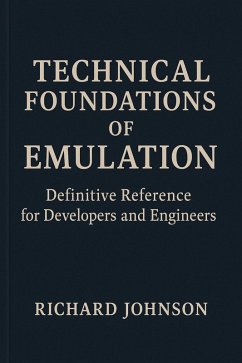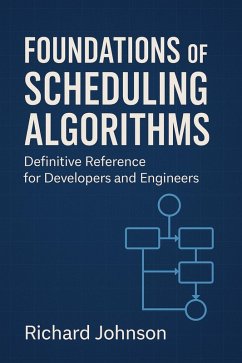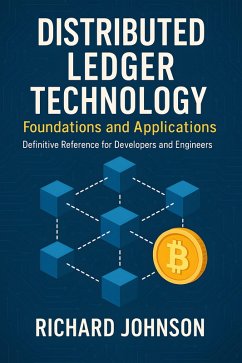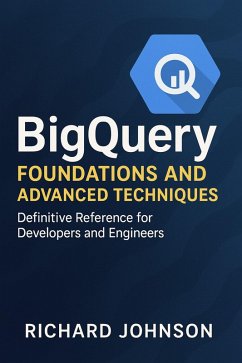
Foundations of Formal Logic (eBook, ePUB)
Definitive Reference for Developers and Engineers

PAYBACK Punkte
0 °P sammeln!
"Foundations of Formal Logic" "Foundations of Formal Logic" presents a sweeping and rigorous exploration of the principles, systems, and philosophical underpinnings of modern formal logic. Beginning with a rich historical and philosophical context, the book traces the emergence of logical reasoning from its ancient origins through the revolutionary contributions of Aristotle and Frege, ultimately charting the evolution of formal systems and their foundational role in mathematics. Engaging with pivotal philosophical debates-spanning realism, nominalism, logicism, formalism, and intuitionism-it ...
"Foundations of Formal Logic" "Foundations of Formal Logic" presents a sweeping and rigorous exploration of the principles, systems, and philosophical underpinnings of modern formal logic. Beginning with a rich historical and philosophical context, the book traces the emergence of logical reasoning from its ancient origins through the revolutionary contributions of Aristotle and Frege, ultimately charting the evolution of formal systems and their foundational role in mathematics. Engaging with pivotal philosophical debates-spanning realism, nominalism, logicism, formalism, and intuitionism-it offers critical insight into the shifting landscape of logic's interpretation and its continuing influence on contemporary thought. Delving into the technical heart of the subject, the text systematically covers the syntax and semantics of formal languages, propositional and predicate logic, and the intricate structures of model theory and proof theory. Readers are guided through the construction of formal languages, the architecture of proofs, and the profound implications of soundness, completeness, and compactness theorems. Advanced and non-classical logics-including modal, temporal, intuitionistic, paraconsistent, and fuzzy logics-are deftly introduced, highlighting the depth and versatility of formal reasoning in addressing complex phenomena. The latter chapters bridge logic with the wider intellectual landscape, illuminating its centrality to computer science, artificial intelligence, mathematics, linguistics, and the sciences. Foundational milestones, such as Gödel's incompleteness theorems and Turing's theory of computation, stand alongside discussions of formal verification, knowledge representation, and the logical foundations of databases. Concluding with a survey of open problems, new paradigms, and ethical dimensions, "Foundations of Formal Logic" equips readers with both a comprehensive reference and a roadmap to the enduring questions and future frontiers of logical inquiry.
Dieser Download kann aus rechtlichen Gründen nur mit Rechnungsadresse in A, B, BG, CY, CZ, D, DK, EW, E, FIN, F, GR, H, IRL, I, LT, L, LR, M, NL, PL, P, R, S, SLO, SK ausgeliefert werden.












